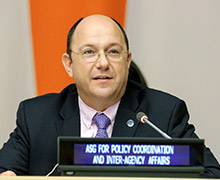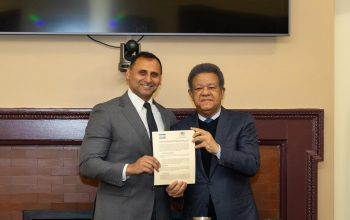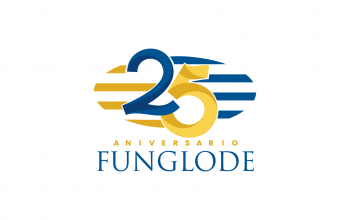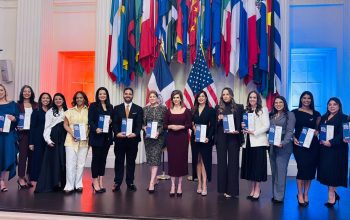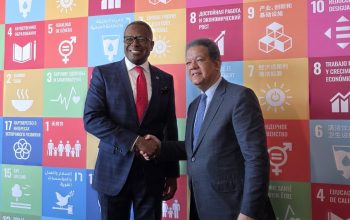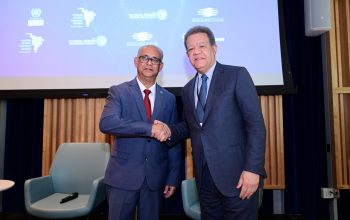news
GFDD/Funglode Call for Enhanced Public Participation of Communities in New UN Development Agenda during 2015 High-Level Political Forum on Sustainable Development
July 16, 2015
The 2015 meeting of the High-Level Political Forum on Sustainable Development (HLPF) under the auspices of the UN Economic and Social Council (ECOSOC) took place from 26 June – 8 July 2015, at UN Headquarters in New York. The theme of this year’s meeting was “Strengthening integration, implementation and review – the HLPF after 2015.” The meeting brought together nearly 1800 delegates, including Member States, Major Groups and other
stakeholders, and intergovernmental and UN organizations. GFDD delivered an oral statement during the conference to stress that engaging local communities and civil society in development initiatives is crucial to ensure these projects are truly sustainable and lead to the creation of long-term collaborative relationships.
The HLPF was opened with a brief opening plenary on Monday June 26, during which H.E. Mr. Martin Sajdik, President of ECOSOC stated that
“2015 must be the year that we launch our new UN Development Agenda”, explaining that the following two weeks of HLPF meetings would provide delegates and other multi-stakeholder the opportunity to “ponder how to keep implementation of the new agenda under review” and make the HLPF the focal point for reviewing progress of the Sustainable Development Goals (SDGs), the successor framework to the Millennium Development Goals (MDGs) due for adoption in
September 2015.
H.E. Mr. David Donoghue, Co-Facilitator of the Intergovernmental Negotiations on the post- 2015 development agenda took the floor to confirm that “the SDGs are truly transformative: seeking to promote prosperity and promote universal peace”. He noted that the 17 Goals and 159 Targets contained in the framework “build on the MDGs, and will represent a major shift towards Sustainable Development for all
countries rich and poor. The universality point marks a significant change from the MDGs as this will be the first time that all the UN Member States will commit to the goals. The document is therefore looking to go beyond the traditional North/South Divide.” He concluded by stressing that “a strong and effective HLPF will be indispensable in translating all of this into reality.”
The HLPF ministerial segment convened from 6-8 July. Following
an opening plenary, the ministerial segment included several moderated dialogues such as “Strengthening integration, implementation and review – the HLPF after 2015”. As part of this topic, Mr. Saber Chowdhury, President, Inter-Parliamentary Union noted that in certain countries national interest groups dominate the development agenda instead of the benefit of the people. In light of this, he stressed the “need for governments, as well as the UN”
explaining this is “why the work of parliaments is so important in this process”.
An afternoon meeting was convened on July 9 with representatives of Major Groups and other stakeholders on “reinforcing Major Groups and other stakeholders’ participation.” Marc Jourdan, GFDD UN Representative, took the floor to deliver an oral
statement on behalf of the foundation providing input on the priority theme “Managing the transition from the Millennium Development Goals to the Sustainable Development Goals: what it will take”. He called for the “need to re-establish trust in the development agenda, by pushing for decisions at the regional and the national level that consider the three pillars of sustainable development”. To achieve this he explained that people
should be put at the center of sustainable development. Jourdan highlighted that “people should be the focus of all efforts to move towards a green economy, one that will deliver benefits to all in addressing food, energy and water security, and the sustainable development goals”. To achieve this he called for a “new agenda, where public participation of communities is enhanced and economic decisions are complemented by social and environmental
outcomes” and made reference to GFDD’s environmental programs: ReCrearte (the Foundation’s recycling scheme, which offers women, youth and children across the Dominican Republic workshops in recycling waste into art as a form of environmental education and economic empowerment) and Eco-Huertos (organic and sustainable
vegetable gardens in schools and communities throughout the country that educate students about the principles of sustainable agriculture.)
As the HLPF session drew to a close, delegates were reminded by Amb. Macharia Kamau, Co-Facilitator of the Post-2015 Development Agenda Negotiations, that the SDGs have immense political will backing them, and it will be imperative for HLPF to address a number of issues, among which is drive the implementation of the SDGS and the
accountability thereof, and to “leave no one behind.”
About the HLPF:
The HLPF was called for by the United Nations Conference on Sustainable Development (Rio+20 or UNCSD) in June 2012 in its outcome document, “The Future We Want.” Paragraph 84 states: “We decide to establish a universal intergovernmental high-level political forum, building on the strengths, experiences, resources and inclusive participation
modalities of the Commission on Sustainable Development, and subsequently replacing the Commission. The high-level political forum shall follow up on the implementation of sustainable development and should avoid overlap with existing structures, bodies and entities in a cost-effective manner.”
Related links:
http://www.r3crearte.org/
www.eco-huertos.org
GFDD Statement – HLPF 2015

